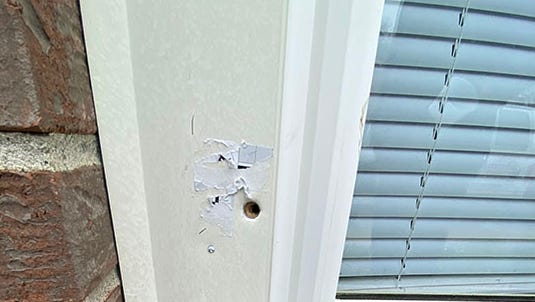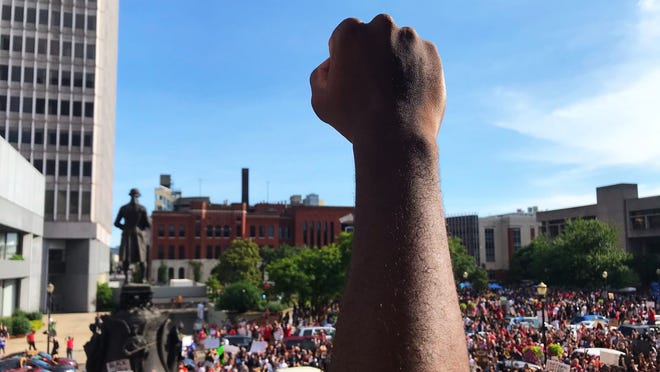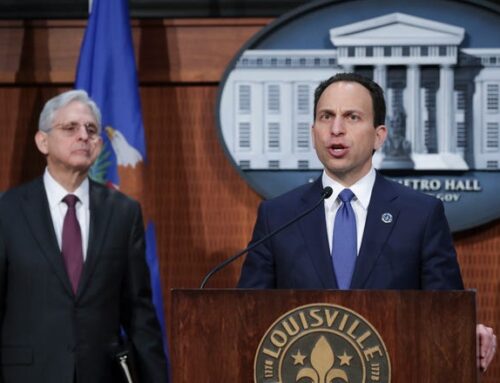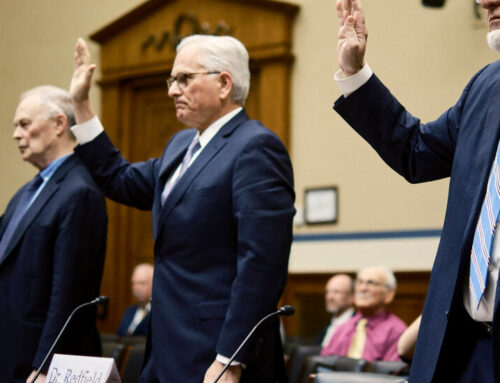The U.S. Department of Justice released scathing findings Wednesday from its “pattern-or-practice” investigation into Louisville Metro Police on Wednesday.
The department, for years, “has practiced an aggressive style of policing that it deploys selectively, especially against Black people, but also against vulnerable people throughout the city,” U.S. Attorney General Merrick Garland said during a press conference from Metro Hall on Wednesday morning. “LMPD cites people for minor offenses, like wide turns and broken taillights, while serious crimes like sexual assault and homicide go unsolved.
“Some officers demonstrate disrespect for the people they are sworn to protect.”
The 90-page report found the department:
- Uses excessive force, including unjustified neck restraints and unreasonable use of police dogs and tasers
- Conducts searches based on invalid warrants.
- Unlawfully executes warrants without knocking and announcing.
- Unlawfully stops, searches, detains and arrests people during traffic and pedestrian stops.
- Violates the rights of people engaged in protected speech critical of policing.
- Discriminates against people with behavioral health disabilities while responding to crises.
Garland said the Justice Department, Louisville Metro Government and Metro Police have agreed in principle to negotiate a consent decree.
The Justice Department has proposed 36 remedial measures LMPD can take.
The probe began after Breonna Taylor’s death and accusations of unconstitutional behavior and discrimination.
Garland announced in April 2021 that police departments in Louisville and Minneapolis would face federal investigations. Both cities saw mass protests in 2020 as news of the police killings of two Black residents – Taylor in Louisville and George Floyd in Minneapolis − reverberated around the world.
While Garland said the Minneapolis probe was prompted by Floyd’s May 2020 death in which an officer kneeled on his neck for over nine minutes, he did not indicate then whether Louisville’s investigation was prompted by the shooting of Taylor, a 26-year-old emergency room technician who was killed during a March 2020 narcotics raid at her apartment that turned up no drugs or money.
DOJ indictments in Breonna Taylor case:Experts predict who has the edge, the feds or the charged officers
The FBI also has been investigating Taylor’s killing separately. The DOJ also has charged several Louisville officers in separate cases since 2020, including four former LMPD personnel in early August on charges either of lying on the warrant obtained to search Taylor’s home, obstructing investigators or — in the case of ex-Detective Brett Hankison — firing bullets that entered a neighboring apartment.
Various local officials, including former Louisville Mayor Greg Fischer and former LMPD Chief Erika Shields, who took over as leader of the department in January 2021 but resigned at the start of 2023 as new Louisville Mayor Craig Greenberg took office, had said they welcomed the DOJ probe as part of the city’s push to improve its police department and relationships with residents. (Greenberg picked Deputy Chief Jackie Gwinn-Villaroel to serve as his interim LMPD chief as he takes office and searches for a permanent chief.)
In early September, Fischer and Shields both said the city has “not waited” in implementing various reforms.
DOJ police department investigations:Are Department of Justice investigations a path to police reform or ‘a war on cops’?
Taylor’s mother, Tamika Palmer, previously tweeted that “I can’t wait for the world to see Louisville Police Department for what it really is,” in response to the DOJ’s announced investigation.
No officers were directly indicted and prosecuted by Kentucky Attorney General Daniel Cameron’s office for Taylor’s death, though several were later fired or submitted resignations. Hankison was charged at the state level in 2020 with wanton endangerment for firing bullets that went into an apartment neighboring Taylor’s that was occupied by three people, and a jury acquitted him in March.
What happened to Breonna Taylor?
Breonna Taylor died after several LMPD officers forced their way into her southwest Louisville apartment with a battering ram around 12:40 a.m. March 13, 2020, with a search warrant to look for drugs and cash as part of a larger narcotics investigation connected to her ex-boyfriend, Jamarcus Glover.
Breonna Taylor fact check:Separating the rumors from the facts
Taylor’s boyfriend at the time of her death, Kenneth Walker, fired a single shot from his legally owned handgun at the door as officers busted it down, telling investigators later that he feared intruders, not police, were breaking in. Sgt. Jonathan Mattingly was hit by Walker’s shot and fired six rounds in response. Detective Myles Cosgrove fired 16 shots, and Hankison fired 10 shots.
Six of those bullets struck Taylor, with Cosgrove firing the fatal shot, the FBI concluded.
What has happened since Breonna Taylor’s death?
The case led cities and states to pass laws banning or limiting no-knock search warrants, and it resulted in various changes and reforms, some still pending, at LMPD following a $12 million settlement the city reached with the Taylor family.
In November, the city also settled with Walker for $2 million after he sued Louisville and several of the officers who were part of the 2020 raid.
LMPD and Metro Government leaders said the city has made changes and reforms since 2020, including fixes in response to a review of the police department from Chicago-based consulting firm Hillard Heintze.
The 2021 report from Hillard Heintze made 102 recommendations to turn around a department it found had failed to establish mutual trust and provide equitable treatment across Louisville’s neighborhoods.
A dashboard on LMPD’s website most recently showed that 37% of the Hillard Heintze recommendations had been “implemented” and 47% were “in process,” with others still under review.
Breonna Taylor shootingA 2-year timeline shows how her death has changed us
City officials estimated in 2021 that reforms at LMPD prompted by the DOJ investigation could cost Louisville up to $10 million annually, and the city directed some federal American Rescue Plan funds to that area. The changes have already included a new Accountability and Improvement Bureau at LMPD and launch of an early warning system for officers after years of delays.
This story will be updated.




